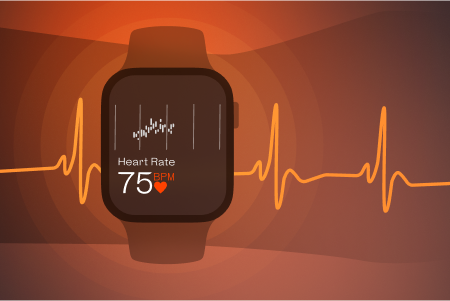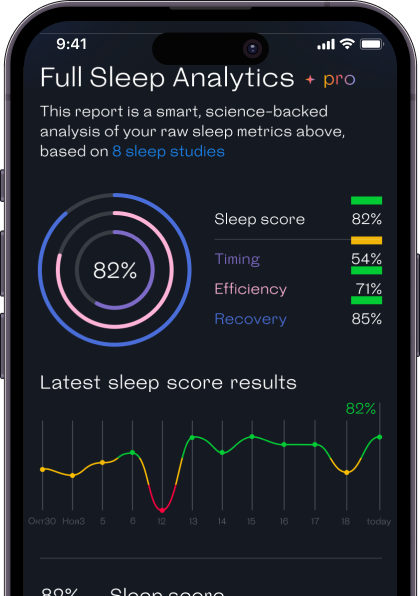


Welltory is the Ultimate HRV App




Home » Stress & Energy » How to cope with news stress and anxiety

It’s tough to stop refreshing your newsfeed, especially when global events are keeping you on edge. There’s even a special term for this — doomscrolling. It may seem that keeping tabs on everything that happens can help you regain control, but more often than not this is just an illusion. In fact, you’re more likely to get sucked down a negative spiral that does more harm than good.
Your stress levels stay high, your body keeps pumping cortisol and adrenaline into your blood, and all of this exhausts your body’s systems. You end up with headaches, digestive and sleep problems, loss of appetite, and inability to focus. So when times are tough, we must prioritize self care — it’s the only way you’ll have the energy to take care of others.
Leave 1-2 reliable news sources on your feed — ones that publish confirmed facts and information instead of catchy headlines and rumors. If you see that a publication doesn’t cite their sources and makes unfounded conclusions, this is a good reason to think about switching to another news outlet.
Promise yourself that you will only read the news twice a day, for example, and only after work. This may be a tough guideline to stick to, but try to avoid reading the news first thing in the morning and right before bed to avoid information overload.
If you work out, getting a good session in will both distract you from anxious thoughts and boost your levels of serotonin — the hormone that helps regulate our mood and sleep cycle. If you don’t have the energy to work out, go for a walk without your phone or just clean up your space.
Breathe in slowly through the nose, letting the air fill your belly and lungs, then breathe out slowly through the mouth. Repeat 3 to 10 times, or until you feel calmer. The influx of oxygen will help slow down your heart rate, and deep breathing will calm your nervous system — just what you need after a stressful news cycle.
You may notice a faster heart rate and sweaty palms, or find yourself wanting to cry. You can use these signals as cues to stop reading the news. Another way to track how the news impacts your body is to take Welltory measurements before and after you read them to see how your scores change.
Get Welltory
for better sleep
Get Welltory
for better sleep



Close your eyes, breathe in, and imagine that you’re driving a car full of your negative thoughts toward a big red stop sign. There are other cars on the road ahead of you. Once you get to the stop sign, breathe in again and imagine that you’ve let your thoughts out of the car at the sign and moved on without them. Once you stop a negative thought, think about something pleasant and soothing to ground yourself completely.
Hug your partner, call your friends, make your favorite meal, take a shower, or buy something that brings you joy. This will help bring you back to the present and distract you from stressful thought spirals.
If you’re overcome with anxiety after reading the news and are moved to make an important decision, your risk of making a mistake is high. Try not to disrupt your routine and think through your plan of action carefully once you’ve had a chance to calm down.
Talk to your loved ones, cry it out, listen to sad music. Don’t be surprised if you start crying suddenly over something seemingly insignificant — let it out. Suppressing your emotions can cause stress that takes a toll on your physical and mental health. If you’re feeling emotionally numb or don’t want to talk about your feelings, remember that this is also ok — all of us have different coping mechanisms.
Focusing on something makes it seem more important, and we change our behavior accordingly. If you think that you’re helpless, your brain will recall all the other times you’ve felt helpless and steer you toward past coping mechanisms. It’s better to think about how you’d like to feel — confident and strong, for example.
If you can’t seem to take your mind off stressful events or stop reading the news, remember that’s also an entirely normal response. Just remember to take care of yourself as much as you can every day.
Welltory Team, 24 Feb. 2023
 App Store
App Store
 Google Play
Google Play
 Huawei AppGallery
Huawei AppGallery
 Galaxy Store
Galaxy Store

